
My father was a creative man. He was an artist with many mediums. Brick and mortar, lumber and drywall, steel and rebar, people—he skillfully composed his masterpieces through the application of all these elements. His gift was his vision, an ability to see a finished creation. He could start with an object in Form A and transform it to Form Z, touching every consonant and vowel along the way, using every letter as a building block. He could produce a goal from less than a whispered idea. Contorting a list of simple criteria, he was able to dream of an end product that astonishingly exceeded expectations. He did the impossible, and he did it all the time.
Many contend his greatest work was his final project. When he was given the assignment I remember hearing about the challenge he had been charged. He told me it was a unique mission, one that would impact the lives of many employees. He was tasked with developing the Amazon.com corporate headquarters in Europe. The company had chosen Luxembourg as the location of the building. Though the city-state is centrally located in the continent, sharing borders with France, Germany and Belgium, he understood the new building would require the relocation of dozens of employees and their families. The very decision to consolidate the division and centralize the European team was met with great resistance. He knew the building would have to be special. He set out to create a workplace that would excite the expats moving to an unknown land. They would be far from the comforts of home, but my father was determined to create an office that inspired the same appeal.
Luxembourg is a place with two identities. As a major financial and business capital, the population of the city triples during work hours. With so many companies moving to Luxembourg, the need for building space is accommodated through the development of new land. Modern business parks and massive office complexes dot the peripheral areas of the city. Wide-laned roads and cement parking garages connect characterless blocks of cubicles and desks. This is the new Luxembourg. But at the physical center of all this newness is an old town with a history centuries old. Cut into a deep forested valley called the Grund, old town Luxembourg is a set of narrow cobbled streets connecting 14th century neighborhoods. Ancient churches and watchtowers cast afternoon shadows over public squares and monuments. People meet for lunch in Italian restaurants carved out of crumbling brick. The air is filled with the din of coffee shop conversation at cafes on every corner. Mature trees shed their leaves and show the seasons. It is a place so full of culture and life it seems to be oozing from the cracks in the sidewalk. This is where people want to be. This is the identity of the city everyone wants to know.
But the practical business person knows that creating an office in such a location is impossible. It is too small, too dense, and far too exclusive. And of course exclusivity comes with a price, surely one that would be too large for a pragmatic company allowance. There were many compelling reasons to believe that opening an office in 21st century Luxembourg meant renting space in the sprawling complexes outside of town. My father didn’t believe any of them.
The Grund became his goal. He combed its cobbled streets looking for the perfect place. It took him months. His vision was uncompromising, and although he uncovered many possibilities, the faultless building was elusive. He ultimately found it in the form of a four story structure, so deep in the Grund it actually abutted the canal flowing in the valley floor. It was originally built as the Bofferding brewery in 1764. He knew it when he saw it—the same walls that created Luxembourg’s national beer would house the activities of the Amazon.com European division. This was a realization that would take months of negotiation. The building was in a dream location and it came with a dream price.
My father’s favorite part of the building was the garden situated between its rear wall and the canal. The garden was a stunning real estate quality, an unbelievable find. With land being so expensive in this district of the city, space for a garden (if it even existed) was simply out of the question in terms of budget. But my father became enamored with the garden. He saw it as retreat for people during the workday, a peaceful place for lunch, a flowered visiting spot for family. It became his fixation and the crux of his negotiations. He worked on a deal over the building for nearly half a year, and when agents couldn’t settle on the appropriation of the garden he nearly walked away from the whole thing.
Last summer, along with my mom and sister, I visited the garden behind the building that is now the European headquarters for Amazon.com. In the center of the garden is a maple tree. It seems to glow even when the sky is gray. It has been planted there in honor of my dad.
I needed to make the pilgrimage again this summer, to check on its growth, to touch its leaves and hold its trunk. It still glows. It was important for me to share the garden with Jeannie, for her to witness the symbols of my father’s life. She knew him in person only for a short time, but she knows his spirit through seeing his work. His legacy lives in the garden in Luxembourg.
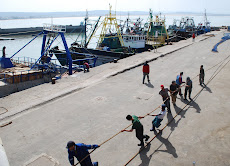
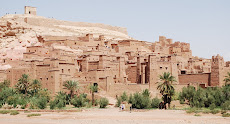
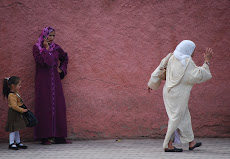
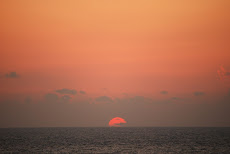


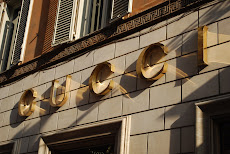
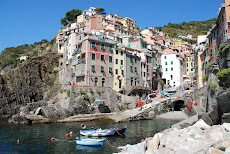
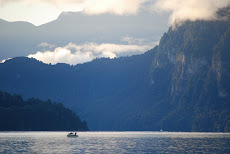


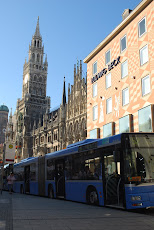
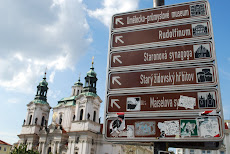
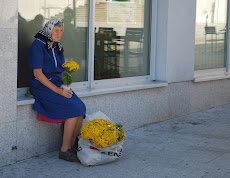
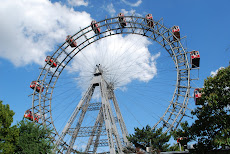

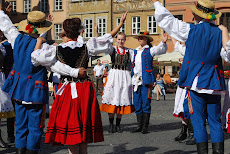
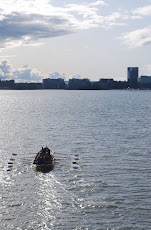




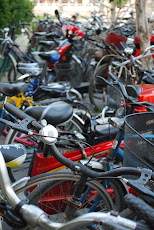
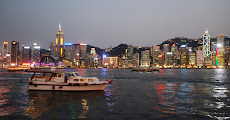
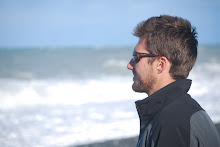
You bestowed much well deserved honor upon your Dad by this entry, Casey! Thank you for sharing both your heart and your amazing Father with all of us. I love you!
ReplyDelete